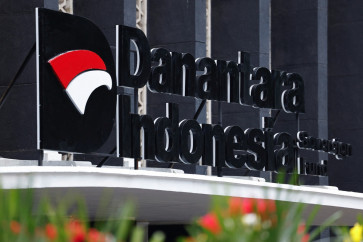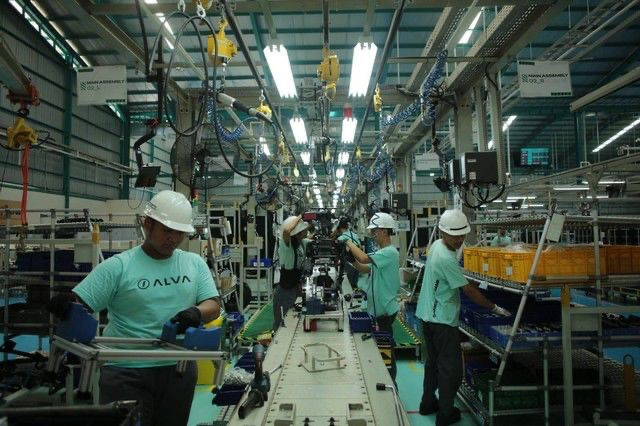Popular Reads
Top Results
Can't find what you're looking for?
View all search resultsPopular Reads
Top Results
Can't find what you're looking for?
View all search resultsFunding problems plague RI science
Djoko Triyono, a researcher at the University of Indonesia (UI)’s faculty of mathematics and natural sciences, said that funding for research was hard to come by and that he had little option but to follow the lead of his fellow researchers and cut back on research essentials
Change text size
Gift Premium Articles
to Anyone
D
joko Triyono, a researcher at the University of Indonesia (UI)’s faculty of mathematics and natural sciences, said that funding for research was hard to come by and that he had little option but to follow the lead of his fellow researchers and cut back on research essentials.
Due to the budget constraints, his research often failed to yield results and this had adversely affected the quality of his work.
“My focus, for instance, is very experimental, therefore it needs advanced tools, which are hardly available in Indonesia,” said Djoko, who received his doctoral degree for research on nanomagnetic materials in Austria.
Given such budget constraints, Djoko said he was often forced to collaborate with researchers from foreign research institutions only to be relegated to secondary research positions.
“We only contribute human resources, while they have all the analysis tools and the funds, and they get the credit,” he said.
Djoko is but one casualty of the government’s disregard for scientific research, as indicated by a low budget for the purpose.
Unlike other middle income countries, where the government is no longer the major source of funding for research, Indonesia has major control over research spending. The government allocated less than 0.1 percent of Gross Domestic Product (GDP) to pay for scientific research.
“There is this big bottleneck because all research funding is still controlled by the government,” said UI emeritus professor Emil Salim.
He said that the lack of funding for research had hampered homegrown scientists as they strove for excellence.
“The government controls all research activities, which employ some of our brilliant scientists, and this has resulted in an environment less conducive to progress in science and technology,” said Emil.
According to a newly-released report titled “Creating an Indonesian Science Fund” published by the Indonesian Academy of Sciences (AIPI), the government controls over 80 percent of the research.
The report, which was published with the support from the World Bank and AUSAID, reveals that most scientists and engineers in Indonesia work in government scientific institutions. The report also said that the government is the biggest spender in research and development.
“But most of the PhD-level trained researchers work in the public universities. Aside from Vietnam, a communist regime, in Indonesia, the private sector contributes the least to research and the university contribution is miniscule,” the report says.
Despite its high literacy rate and large numbers of quality universities and research institutions, Indonesia ranked 64th in the number of papers published in peer-reviewed journals between 1996 and 2010. The majority of Indonesian scientists shared their research credits with foreign scientists, with 74 percent of the country’s scientific projects coming in the form of international collaborations.
AIPI chairman Sangkot Marzuki said Indonesia had yet to come up with a working system to generate and distribute funding for research purposes.
“How can you complete significant research projects if you base your funding disbursement on a year-on-year basis from the state budget? What you need is a multi-year project,” he told The Jakarta Post over the weekend.
Sangkot said that under the current government-sanctioned mechanism, researchers had no more than six months to carry out and complete their research.










